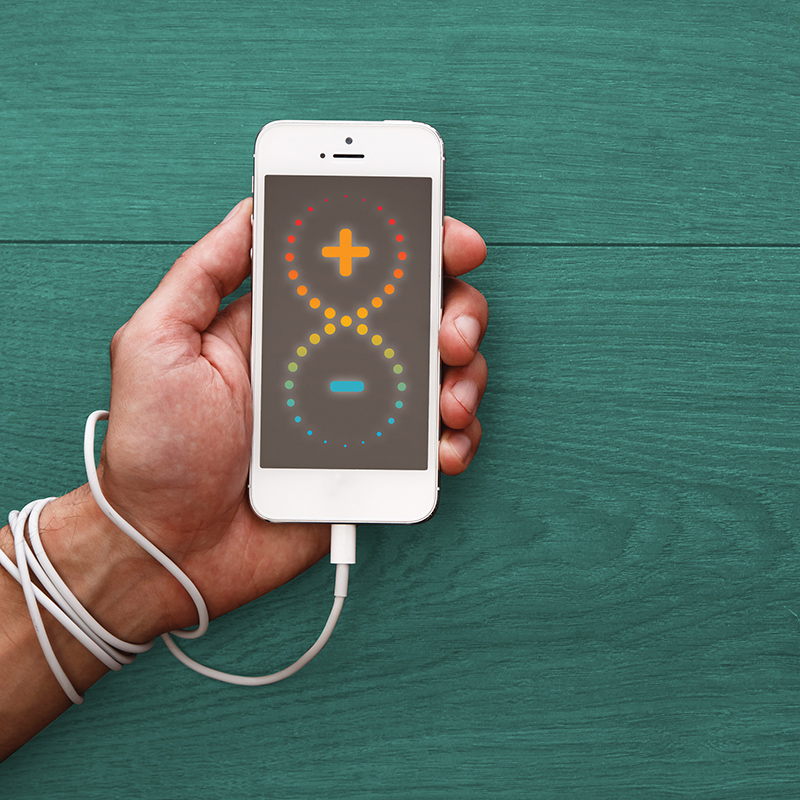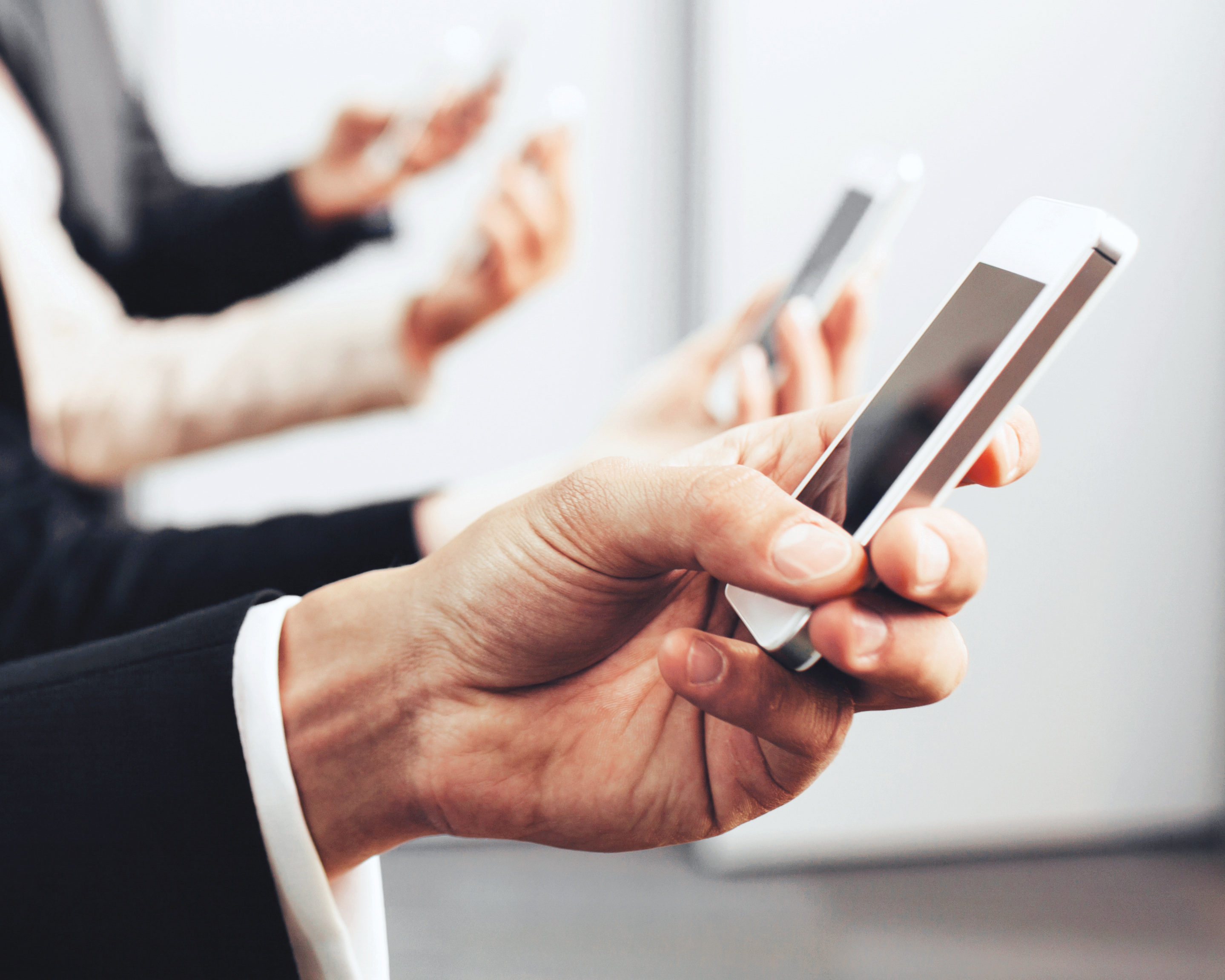
No more phobia about nomophobia
Nomophobia, i.e. discomfort or anxiety experienced when you’re without your mobile phone, has been confirmed as a universal phenomenon. But how nomophobia affects a person’s performance at work is not well understood.
A CityU research team has developed a pioneering theoretical model that explains the dual effect of nomophobia on employees’ job productivity.
“Prior studies investigating nomophobia have tended to relate exclusively to the problematic use of smartphones, but whether nomophobia is an indicator of better engagement with work and higher productivity or is an indicator of distraction from work and exhaustion remains unclear,” said Dr Suh Ayoung, Assistant Professor in the School of Creative Media (SCM) and the Department of Information Systems.
The theoretical model on how nomophobia influences productivity that Dr Suh has developed with Dr Wang Guan, a senior research assistant in SCM, is the first of its kind.
On the basis of the job demands-resources theory, the new theoretical model explores the complex interplay among employees’ nomophobia, work engagement, work interruption, emotional exhaustion, and self-perceived job productivity.
“We tested eight hypotheses using the model with data collected from 187 employees in an organisation in South Korea,” said Dr Suh.
 The results suggest both positive and negative effects of nomophobia on work-related outcomes coexist. Firstly, employees with a high level of nomophobia have increased work engagement, meaning that they feel more engaged with tasks. With increased work engagement, they feel they are more efficient in accomplishing tasks and generating higher job productivity. Secondly, employees with high level nomophobia are more likely to experience negative emotions such as tension, worry, anxiety and depression, and tend to feel less productive. Thirdly, there is an indirect pathway by which nomophobia decreases employees’ subjective experience of productivity.
The results suggest both positive and negative effects of nomophobia on work-related outcomes coexist. Firstly, employees with a high level of nomophobia have increased work engagement, meaning that they feel more engaged with tasks. With increased work engagement, they feel they are more efficient in accomplishing tasks and generating higher job productivity. Secondly, employees with high level nomophobia are more likely to experience negative emotions such as tension, worry, anxiety and depression, and tend to feel less productive. Thirdly, there is an indirect pathway by which nomophobia decreases employees’ subjective experience of productivity.
Interestingly, the team found that nomophobia increases work interruption, but work interruption does not directly affect job productivity. However, the results show that work interruption increases employees’ emotional exhaustion and hence deceases their self-perceived productivity.
 “The findings illustrate a paradoxical phenomenon: constant connectivity via mobile devices encourages workers to work harder, but their productivity may ultimately decrease due to their decreased emotional well-being,” said Dr Suh. “People can’t switch off their work-related thoughts, even if they are at home, and they are unaware of this.”
“The findings illustrate a paradoxical phenomenon: constant connectivity via mobile devices encourages workers to work harder, but their productivity may ultimately decrease due to their decreased emotional well-being,” said Dr Suh. “People can’t switch off their work-related thoughts, even if they are at home, and they are unaware of this.”
So, the theoretical model explains two pathways leading from nomophobia to an increase (or a decrease) in job productivity. “The findings have advanced the current knowledge about nomophobia, and its relationship with work-related outcomes in organisations, which is more complex than previous understanding,” Dr Suh said.
The findings can help increase managers’ and workers’ awareness of the effects of nomophobia in the workplace, she added.
 Dr Suh Ayoung (left) and Dr Wang Guan have developed a new theoretical model to explain the dual effect of nomophobia on people’s job productivity.“One approach to this problem could be designing tools that allow employees to limit phone use to work-related functions during working hours. This could help to find a balance between managerial control and employee autonomy on smartphone use, and promote positive smartphone use in workplace,” Dr Suh concluded.
Dr Suh Ayoung (left) and Dr Wang Guan have developed a new theoretical model to explain the dual effect of nomophobia on people’s job productivity.“One approach to this problem could be designing tools that allow employees to limit phone use to work-related functions during working hours. This could help to find a balance between managerial control and employee autonomy on smartphone use, and promote positive smartphone use in workplace,” Dr Suh concluded.
These findings were published in the Proceedings of ACM CHI Conference on Human Factors in Computing Systems (CHI 2018), Montreal, Canada, entitled “Disorder or Driver?: The Effects of Nomophobia on Work-Related Outcomes in Organizations”.

